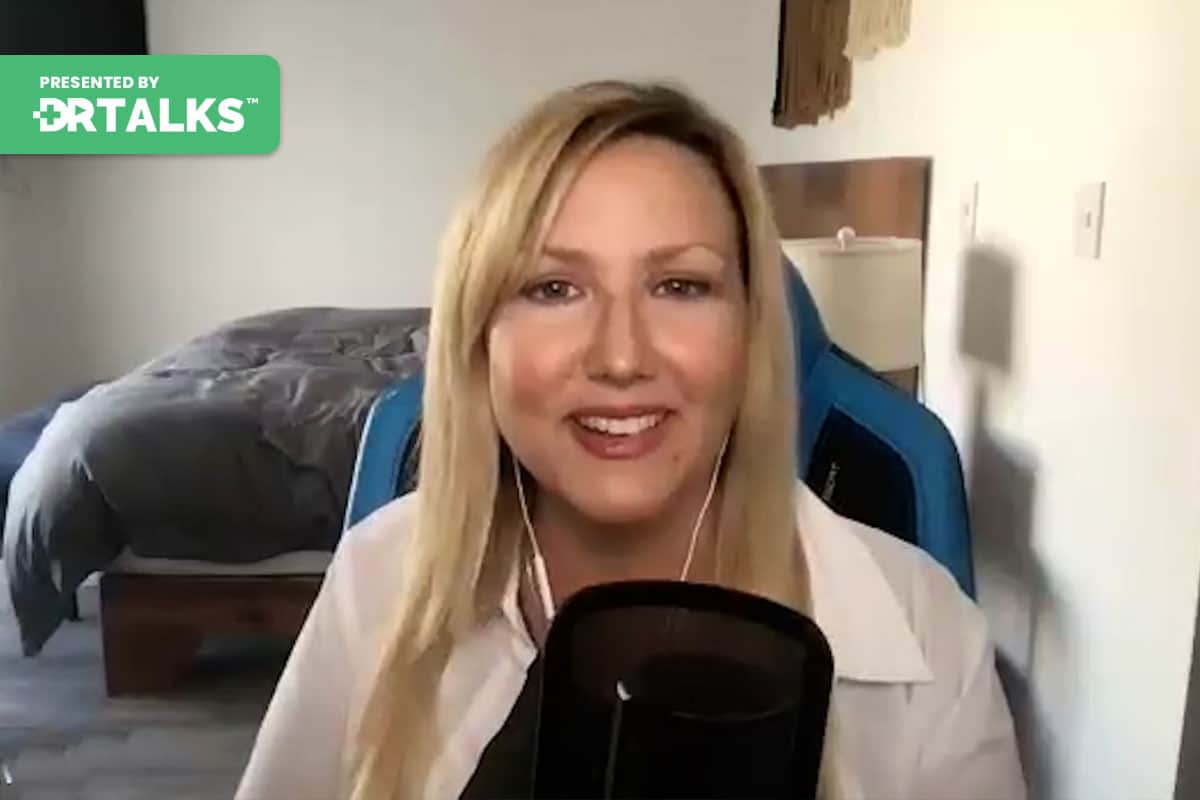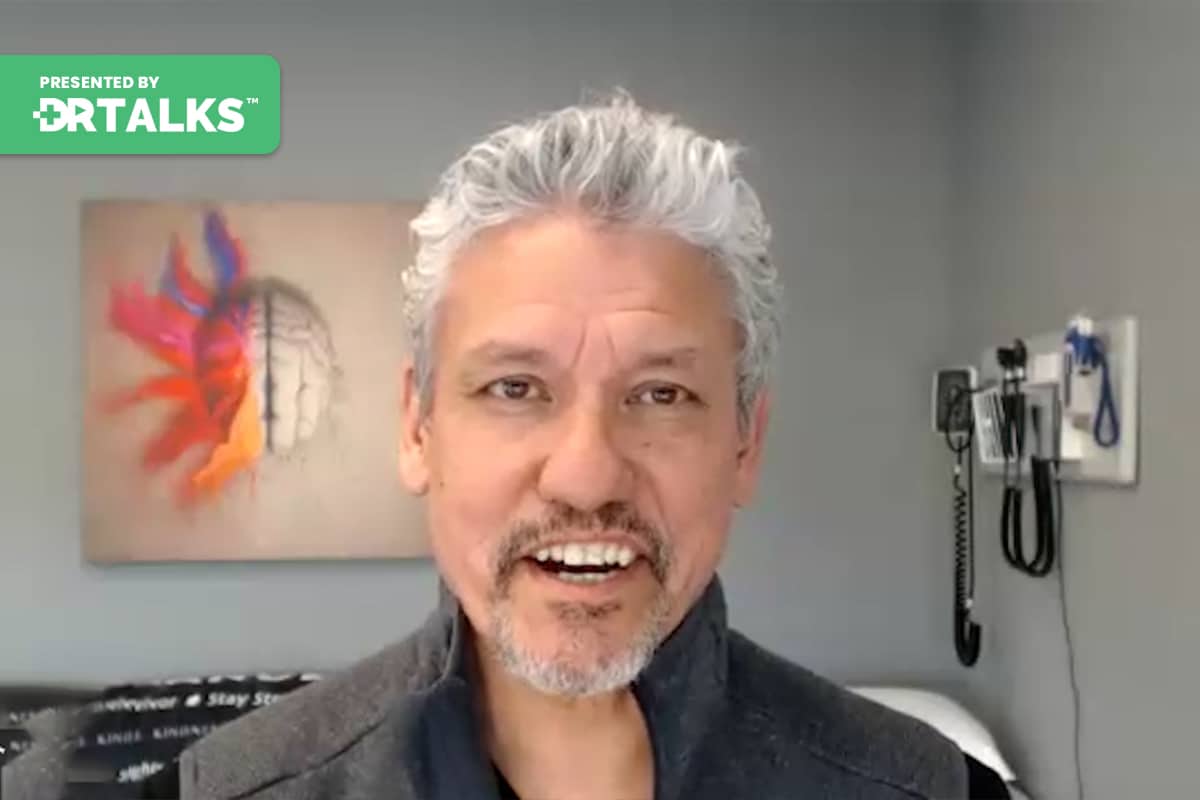Join the discussion below

Dr. Heather Sandison is the founder of Solcere Health Clinic and Marama, the first residential care facility for the elderly of its kind. At Solcere, Dr. Sandison and her team of doctors and health coaches focus primarily on supporting patients looking to optimize cognitive function, prevent mental decline, and reverse... Read More

Wendy Myers is founder of MyersDetox.com. She is a detox expert, functional diagnostic nutritionist, and NES Bioenergetic Practitioner, as well as the #1 bestselling author of Limitless Energy: How to Detox Toxic Metals to End Exhaustion and Chronic Fatigue. Additionally, Wendy is the host of The Heavy Metals Summit and... Read More
Dr. Wendy Myers describes how heavy metal exposure cause Alzheimer’s and dementia
- Learn how heavy metals cause brain fog
- Learn about toxins that lower neurotransmitter production and how that affects your mood
- Understand how to safely detoxify heavy metals from your body
- Discover the best tests for heavy metals
Heather Sandison, ND
Welcome to this episode of the Reverse Alzheimer’s Summit. I’m your host, Dr. Heather Sandison, and I’m delighted to introduce you to my colleague, Dr. Wendy Myers. She’s a natural path doctor and the founder of the Myers Detox and Myers Detox Scone. She’s a heavy metal detox and bio energetic expert, as well as the number one bestselling author of the book Limitless Energy How to Detox Toxic Metals and End Exhaustion and Chronic Fatigue. Dr. Myers is the host of a top 100 rated podcast, the Myers Detox podcast, about protecting your health and using detoxification to achieve optimal health. Welcome, Wendy.
Wendy Myers, FDN-P, NC, CHHC
Yeah, thanks so much for having me.
Heather Sandison, ND
So, you know, we each had a not that long ago and one of your questions to me was about Alzheimer’s and of B.M., and I don’t test it for my patients. And I was sort of way I had nothing really to say. And you’re like, just hold on a minute. I will tell you about aluminum and Alzheimer’s. So I want you to just share with our audience because it’s this gap that I have and I don’t. I don’t test it. I don’t really look for it. I tell people to avoid it. But there’s a lot of confusion around all of this. And so tell us everything that you know.
Wendy Myers, FDN-P, NC, CHHC
Yes. So, you know, there’s a lot of different heavy metals. Aluminum is not technically a heavy metal. It’s a toxic metal. But there’s a lot of different metals that cause a lot of issues in our brain that promote dementia and memory issues and promote Alzheimer’s and Parkinson’s and other forms of dementia. And so with aluminum, you know, they’re not 100% sure. But, you know, we know we know aluminum causes a lot of different problems in the brain. But what the researchers think is that it’s not the aluminum itself that’s causing the issues, but it causes the brain to produce a beta amyloid proteins and plaques and things like that are kind of a contributing factors in the brain degeneration that we see with Alzheimer’s. And so they think it may not be just the limit itself, but the brain reaction to it as well, because it doesn’t matter what metal you have, it really matters more what your how your body is responding to it, how your immune system is responding to the the kind of response that your body is launching against that metal and not what is what causes a lot of the symptoms and the health issues associated with these heavy metals.
Heather Sandison, ND
Because they’re inert. It’s not like they’re growing thin. They’re not living things that can directly create a problem potentially. I guess mercury. Mercury, when we see that, it looks like that does directly impact the myelin sheath. But you’re saying with something like aluminum, there’s sort of an indirect effect where it’s triggering some sort of inflammatory response that can show up as amyloid plaque formation. Is that right?
Wendy Myers, FDN-P, NC, CHHC
Yeah. So that’s one potential, you know, kind of link to Alzheimer’s. But aluminum is pretty toxic. I mean, it does kill brain cells. You know, we think that because it is used as an adjuvant and some injections that it did, that can cause, you know, encephalopathy and brain inflammation. So it has a wide range of negative neurological effects. And so, you know, it also produces, you know, reactive oxygen species or oxidative stress was directly affects the function of your cells and your mitochondria and, you know, can damage or your DNA and things like that. And also the aluminum causes microglial activation. So it’s an inflammatory response in the brain and it’s mediated by activated microglia, which are the resident immune cells of the central nervous system. And so activation of these microglia is a hallmark of brain pathology. So aluminum especially promotes this and causes this microglial activation and resultant cognitive dysfunction and brain fog. So. And just for.
Heather Sandison, ND
Listeners, you’ve probably heard that word, but sometimes people pronounce it microglia. So we’ve talked a lot about that activation of the brain immune system in this summit. So if you’re hearing those words like cochlea and microglia, they’re the same thing. Okay.
Wendy Myers, FDN-P, NC, CHHC
I’m probably mispronouncing it, but no.
Heather Sandison, ND
No, I know we like read all these words, right? And I never hear anyone pronounce them. So then I go to say that I’m not doing that right, but I don’t think that there’s a right way to do it. I just want to make sure everybody understands that we’re talking about the same thing.
Wendy Myers, FDN-P, NC, CHHC
Okay, great. Perfect. Yeah, and no mercury. Another, you know, very common in our environment. And you know what I mean? As far as, like, aluminum, I’ll just go back and see where we get that because people might be.
Heather Sandison, ND
Like, how do they where does it come from? How would it how do we test for it and then how do we get rid of it?
Wendy Myers, FDN-P, NC, CHHC
Yes. So for aluminum. So where that lies is in aluminum foil, tin cans. It can be when you go to restaurants, they’ll typically be using this really light inexpensive aluminum cookware because it’s disposable, you know, the kind of obsessed, the cheaper restaurants they just want use the cheapest stuff they can. If you and it’s very light so there’s no weight to it. And same with forks and silverware. If you’re all restaurant, it all almost weighs nothing. It’s not titanium, it’s aluminum typically. And then there’s also the aluminum is an anti-caking agent and salt, sugar and flour. How much of that are you eating? And or even if you don’t eat it now, you know, you touch those things for a health conscious. You probably ate it for decades. So you know and also you breathe it in. Air pollution is the number one ways that we actually get a lot of the different chemicals and heavy metals that are in our body. And so air pollution is a big issue. Aluminum is one of the most common metals in the Earth’s crust. So it’s very common. There’s a lot of other places we get aluminum in our water. So it’s one of those things like almost everyone is going to have some amount of aluminum, not to mention we get it in deodorant, you know, so we’re just slathering it on our skin every single day. And so your skin absorbs the anything that you put on it. It’s very adept at absorbing through your skin, getting directly into your bloodstream, and you don’t have the benefit of the liver kind of detoxing that. And so how we detect it, I think our analysis just.
Heather Sandison, ND
Isn’t going real quick. So tin foil and tin cans and foil and aluminum cans, what’s the difference? Are they all the same thing?
Wendy Myers, FDN-P, NC, CHHC
Yeah, it’s just the name. It’s the same thing.
Heather Sandison, ND
It’s also the Jets tend to have some aluminum in it because I do tests for tin. And one of the craziest things in my practice was realizing that parchment paper is a huge story because sometimes people are deciding between Do I use tin foil or do I use parchment paper and parchment paper is a huge exposure for tin, but is tin so tin and aluminum are the same thing?
Wendy Myers, FDN-P, NC, CHHC
Well, no, usually it just depends because usually the cans are made out of tin. But the like when you look at canned food. But when I’m talking about sometimes people refer to, you know, like the cans and soda, those are made of aluminum. So those are called the soda cans are made of aluminum. But sometimes people will call aluminum foil, tin foil, but it’s actually aluminum. So yeah, I don’t know why not.
Heather Sandison, ND
They say that, you know, does it matter? Like with plastic, you get exposed to more of it when you heat it and it kind of leaches into your food. Is it the same for metals like? Does it have to be heated or does it make a difference? Is it if it’s heated or is it not going to change anything?
Wendy Myers, FDN-P, NC, CHHC
So like aluminum foil is very soft, so dogs have a much easier time getting into your food, especially of the foods acidic and kind of edge off a little bit of the metal. So if you’re cooking food, I think if you just put aluminum on top of a food and it’s not really touching it just to store, it probably doesn’t really matter. But I don’t recommend heating up the metal and then cooking it, say like an a grill or whatnot. A lot of people are, you know, cooking food on grills and ovens and just, you know, using aluminum foil. It’s just not the most ideal material. So there’s just a lot of safer alternatives out there for cookware because it’s just all these little exposures build up over time.
Heather Sandison, ND
What do you recommend using for cookware?
Wendy Myers, FDN-P, NC, CHHC
Well, I like stainless steel, good quality stainless steel. If you have a set that’s maybe 20 years old and there’s lots of little marks and things in it and scratches, you probably want to replace that because that can be leaching metals into your food. But stainless steel is, you know, usually the most stable. You know, titanium cookware is also really good as well. But stainless steel is the most accessible, is, you know, least expensive. I don’t like cast iron cookware because that’s going to leach iron into your food and that’s a form that we can’t absorb. It is not it is not contributing to nutritional iron. Iron is the biggest cause of dementia. The biggest cause of dementia. And again, it’s added to our flour and enriched flour genius idea that someone came up with a long time ago. And so, unfortunately, that our bodies are very evolutionary, resistant to let go of iron. And so we accumulated and we have no way, no way to really excrete it. And so, you know, women that are menstruating, they tend to they release a lot of blood and iron with their menses. But men and menopausal women are accumulating and accumulating and accumulating. And it’s a tremendous causes, a tremendous amount of oxidative stress and it prevents a detox of other heavy metals as well. Very problematic. So that needs to be released with donating blood about every 3 to 6 months. And that’s how you systematically get rid of the iron in your body.
Heather Sandison, ND
And so tell me if it’s going to affect how you test for this. So you’re looking at hair analysis, is that right?
Wendy Myers, FDN-P, NC, CHHC
It depends on the metal because different metals have different entry ways in the body. So some of those we see best in the hair, some best of the urine, some best in the stool, some best in the blood like lead. So it really depends on what metal. But you can do all those tests that’s ideal. You still won’t see all the metals you have in your body because most people don’t have the energy or the nutrients or are not doing detox protocols that will kind of coax, you know, these these metals out of our body. And so initial baseline tests may not be so spectacular. You may not see very many metals coming out, but when you start doing a detox protocol, you start, you know, taking nutrients needed to bind on to toxins to remove them. And we, you starting there, is one of the things that help to coax metals out of your fat cells in your bones and things to root to excrete them. Then you would see more metals coming out on a test. But even, you know, detoxing for years, you’re going to have new metals coming out on subsequent tests. So don’t think that there’s no test out there that will show you all the metals you have in your body. You’re just going to see what’s coming out the last few months or a few days, depending on what tests that you’re doing.
Heather Sandison, ND
So do you recommend provocation? Do you recommend kind of getting things going before you test.
Wendy Myers, FDN-P, NC, CHHC
You know, provocation? You’re always going to have metals coming out. I mean, it’s just because you’re provoking the metals. But for me personally, I don’t do provocation for a number of reasons. One, because I normally use hair metal analysis because I think it shows us the most metals that people have. It has to be properly read. It’s not so cut and dry as people think, but it reveals a lot of hidden metal toxicities of read properly. Number two. So if doing a urine test, many people, especially they’re very ill, don’t tolerate highlighters very well and the like. Provoke test can be very stressful for them and very uncomfortable for them. And so and we know if you’re doing like the MRSA, you’re always going to have almost always nickel 11 mercury because that’s what that thought provoking agent prefers. But what about the other metals? There are many other metals in those tests that you’re not going to see because a provoking agent is preferring mercury like nickel and maybe another metals. So I don’t use provoking agents because I wanted to see what the body is excreting on its own in. And I know no matter what test you do, I know that everyone has let everyone has aluminum and almost everyone has mercury and most people have cadmium and nickel and arsenic. So and everyone has radioactive metals as well that we’re not even able to test for except maybe, you know, uranium and cesium. So and the season is best seen on a urine test. So there’s a whole there’s a whole thing we can unpack here. But, you know, if.
Heather Sandison, ND
Everyone has them, is there some degree of this? This is normal, right? There is lead in all of the soil, right. So there’s going to be an LED in all of the plants. So some amount of this is that’s normal and then some amount that’s not normal.
Wendy Myers, FDN-P, NC, CHHC
Well, some people you know, it’s not normal for us to have metals in our body that are not they are causing problems, metabolic issues, you know, lead causes, you know, 20% of the fatal heart attacks we have, arsenic causes, high blood pressure, you know, mercury and lead and arsenic and, you know, thallium and other metals, aluminum, promote dementia and other, you know, cognitive issues and memory issues. So the problem comes when people have a reduced ability to detox. So they become so toxic and have built up this body burden of toxins that it impedes their ability to detox. It’s kind of this catch 22. It overburdened their liver, their kidneys and causes different metabolic issues. And so they have blood sugar issues and whatnot. And then and causes stress and reduction in sleep and then reduction in their stress, sex and thyroid hormones. And, you know, they’re just not able to function well and thus not able to detox that they’re in a very stressed state like that.
And so what happens with people is and especially they can have genetic issues where they don’t have a good propensity to detox. So when we have all these toxins build up our body, we have a reduced ability to detox. We have like a can reach like a tipping point where you reach a point where then all of a sudden you start having you get a diagnosis or have a chronic health issue or you can’t sleep anymore, or you have the hormone levels of menopausal woman in your thirties. And then all of a sudden, like, how does how did this happen? You know, and it can be the result of those toxins building up over time. But some people detox really well. You know, some you know, you know, your grandpa that drank and smoked until he was 100 years old. He’s got an Olympic liver, you know, win the gold medal. But that’s probably not you with anything. There’s a bell curve. There are some people that detox amazing and other people that have complex chronic illness, chronic fatigue. Those are the people typically don’t detox. Well, the toxins build up and they cause a lot of different health issues. And then we have to factor in how your body reacts with the immune response it’s launching to these metals. So people that have allergies or sensitivities to metals that make their symptoms even worse when the next person can have the same amount of metals and be functioning just fine.
Heather Sandison, ND
Got it, got it, got it. And so I want to go into like what people can do about this. Can you take us into some simple tips for detoxification so they can just at least get started even if they don’t have a test?
Wendy Myers, FDN-P, NC, CHHC
Yes. Yeah. So you don’t have to do testing. I mean, it’s better to test not gas. Some people have some weird outlier metals that take specific nutrients to detox. So it’s always better to test and heroin analysis is not expensive at all. Noninvasive, but if you want to get started the day, you can do something like take binders, binders or little sponges or supplements that, you know, soak up all the hundreds of chemicals that we have in our body and metals and glyphosate and things like that. And so you can take things like C60 carbon or you can take char activated charcoal or modified citrus pectin or zeolites and things like that. Lorella is going to be nice as well. And so all of those in different ways will bind on to different toxins. And sometimes you have to be careful because where you, you, you, you’re detoxing metals, you’re also getting rid of minerals. So mineralization is one of the keys to detoxification because when you properly mineralized your body, you’re pushing out and displacing heavy metals from your system. Most people are mineral deficient for so many reasons, so you need to be adding salt water, know like a sea salt to your water that you’re drinking. You need to be taking lots of, you know, magnesium, zinc, selenium, usually sodium, potassium to support your adrenals because we’re under so much stress. And then you need to take a trace mineral like a Quinton or a healthy salt to get those trace minerals. And so you really can’t get enough of minerals. So I think some of the worst advice out there are some not salt your food worst health advice on the planet that’s causing so many different problems because your body doesn’t work without minerals just all the different oh.
Heather Sandison, ND
You how many of my patients I make. I think you just have a mineral deficiency. You just get your minerals up and so many of your problems will go away.
Wendy Myers, FDN-P, NC, CHHC
Yeah, just that. That thing alone, what will has a downstream effect is solve a lot of health problems. People can sleep, you know, people anxiety, things like that.
Heather Sandison, ND
Constipation, I mean, the list goes on and on and on. Cramping, of course. Yes. And so we’re talking about you talked about bowels and kind of getting binders on board. Having a daily bowel movement, I’m sure, is a big part of your process. The way I think we’re both natural class, so I’m sure we both sort of have this model of the among arteries are the organs of elimination. Do you kind of give people tips for each of those organs or how do you organize yourself around detox?
Wendy Myers, FDN-P, NC, CHHC
Yeah, for sure. You know, we I have people do coffee animals. I think those are really important, not only to clear the bowels because a lot of people are constipated or not going to the bathroom enough. And you should be going, you know, a couple of times a day, at least the most people are not doing that. So coffee animals are a great way to clean out the bowel, but more importantly, to stimulate the liver. The caffeine dilates the capillaries in the liver and helps it excrete its toxic contents into the liver. Make more bile, make more glutathione on all helpful for detoxification. I love people to do walking a rebounding sauna will stimulate circulation and lymph flow, which is really important to carry toxins and, you know, different byproducts and endogenous toxins that we make in our body to help carry that out. And also, you know, doing things like, you know, taking bitters or getting bitter foods and drinking lemon juice, vinegars, things like that to help to stimulate bile flow and bile production, which is really it’s like it’s not, you know, the best binder on the planet really, for toxins. And so a lot of people don’t make enough bile. And so really important to get digestion on board as well. I think, you know, so many people are taking all these different supplements, but it doesn’t matter what you eat or what you supplement with, it only matters what you absorb. And heavy metals impact every different aspect of the digestive system and hydrochloric acid production and brushwood are enzymes and pancreatic enzymes. So just, you know, in the metals just throw a big wrench and all that. Not to mention, you know, different pesticides and glyphosate killing off our microbiome and impeding our digestion. So just so digestion, super important. And then also, you know, I love infrared saunas and bionic foot bass is detox protocols nice.
Heather Sandison, ND
So they get things out through sweating. What about the lungs? You know, I feel like this is one of these forgotten detox organs, but we can use the lungs for detoxification. How? How do you do that? Or do you put that to work? What do you tell patients?
Wendy Myers, FDN-P, NC, CHHC
No, I don’t really pay any attention to the lungs. Unfortunately, I probably should. But, you know, there’s not a lot that you can really do. But one thing that I do that addresses the lungs is I when people come to me and they’re very ill, they can’t take supplements, they can’t eat any foods, they can’t detox. What do you do with these people? And that’s a lot of people. And so I employ a bio energetics program. It’s called Ness Health, and it’s an incredibly advanced software that will look at everywhere in your body. You do a scan, it tests 800 different data points, and we’ll look at it everywhere in your body. You have an energetic blog on your meridians, your chakras, the different organ systems and organs, glands that have energetic blocks that could be caused by chemicals, heavy metals, emotional trauma, which is a huge ah under lot a, you know, overlooked component to our physical health. And it will also look at just all kinds of different things, your food sensitivities and the sensitivities to EMF, just all kinds of stuff. Amazing amount of information.
There’s your polarity, how your body is grounded. We’re electrical beings. We have to be grounded for our body to work properly. Our brain is electrical. So when people do this type of scan, we can. The reason I do it is one, it promotes detoxification of the body. It gets all the detox organs of digestion working properly. It reduces stress, gets people sleeping better, gets people into a parasympathetic state. So that they’re better able. Their just body is just working better. So they’re able to detox better. And it gets them to the point where they can tolerate supplements, they can tolerate foods and because it also feeds the immune system correct operating instructions. So it calms down these, you know, allergies, histamine, Mazor activation Syndrome issues, autoimmune, anything immunity it’s it shines it correcting those things because it’s just it’s very sophisticated. There’s about 50 years of research behind this program. So that’s what I use when people are kind of at their wit’s end and they really can’t do anything. They can’t really do any protocols anymore. And so nuts help is just amazing at correcting overall bodily functioning. So that’s what I do with people.
Heather Sandison, ND
You know, that’s that, it’s interesting because that’s similar to how I started thinking about Breathwork is I had so many patients, particularly mold patients who came in so sensitive and I couldn’t agree with you more. 100% of my male patients have some sort of PTSD and it usually is early childhood trauma and it creates this like hyper vigilance, this hypersensitivity. And so they can’t tolerate supplements. There’s no way they could tolerate getting this on. It’s too depleting. They’re already so depleted. There was almost I felt like my hands were tied. There was nothing I could do. And what I love about doing Detox Breathwork is that it hits exactly what you’re describing. The parasympathetic that helps to regulate like vagal nerve activation and create this kind of cycle nerves that are associated with the parasympathetic. And it also helps to like literally detoxify. We can exhale some toxins. So it was this great sort of a way to to help people who are very, very, very sensitive and how wonderful that you have this alternative that I’m less familiar with with the bio energetics, but it meets that need of helping people who are in this really tough space of absolutely needing the help that absolutely needing medical care, but being able to tolerate so little of it.
Wendy Myers, FDN-P, NC, CHHC
Yeah. And it’s frustrating because these people, they’re very emotive. They want to get help. They want to feel better. And they just and it’s you can’t supplement your way out of that. It’s like, so how do you fix that? You know, when you can only eat five foods and you can’t take supplements, even if you go to a functional medical doctor, there’s not much they can do with you. And so and that’s one reason why I’ve also focused a lot on emotional trauma in my practice as well. And I have an emotional detox program that really goes into all of the conventional medical research behind sound therapy and energy medicine in addressing emotional trauma, because we all have it. Even if you weren’t abuse, a lot of people have neglect, which has the same effect on you as if you were abused. And so there’s a lot of other adverse childhood events.
People can deal with that will contribute to dementia and Alzheimer’s and any imaginable health issue. And there’s a really interesting study by Kaiser Permanente that studied 17,000 patients, and they found that 65% of physical health issues are due to adverse childhood events, or there’s childhood development trauma that people have. So it’s a very significant factor that people need to address if they want to feel better physically and mentally. And what I like about the net’s health biologic scan is it looks at all of your emotional traumas and what’s because these are frequency is it can be measured. Everything has a frequency. Every emotion, every trauma, everything has a frequency that can be measured, that can be picked up in this that galvanic skin response test that’s done, this type of scan. And then you and you can see what organs are being affected. And it’s really tremendously fascinating. And that’s why I like using it with people because you need to address the emotional trauma component to really feel your best, both physically and mentally as well.
Heather Sandison, ND
So tell us a little bit about that emotional detox. What does that look like?
Wendy Myers, FDN-P, NC, CHHC
Yeah, so my emotional detox program, I go on, I talk about nestled in it, but it really is going into using biofilm tuning fork therapy, which is a form of sound therapy that helps to that resonant frequency. When you’re using that on your body, kind of hit a fork and put it on your chest and it really kind of resonates to stimulate stem cells. That’s really what it’s doing to help repair your body. Whatever problem you’re having is very anti-aging as well. But, you know, I go into all the research where we have this energy field or a body feel about ten feet in diameter, three meter or three meters in diameter around our body and in this energy field the energetic frequencies are imprints of our trauma. So all of our traumas lie in our energy field. So they require a sound therapy or energy medicine approach to release them.
So you can do that with energy, medicine, bioenergetics, software like nasal or sound therapy, bio filled tuning, fork therapy and all that. And there’s conventional medical research to support all of this. What I’m saying, and I have all of it in my emotional detox program and and so that’s why I talk therapy doesn’t really work. So, I mean, I’ve done ten years of talk therapy and I was still a mess afterwards and still dealing with a lot of trauma from my past because I didn’t have the right approach. And so you have to use a sound therapy to kind of vibrate these traumas out of your energy field and you release them for good. You might still have the memory, but you won’t have see the be triggered by it or not have like the nervous system response or sensitivity that you might have from this trauma that’s still lying in your energy field.
Heather Sandison, ND
Wow. How fascinating. And I know there’s probably a ton of people listening who feel stuck in that like that. They’ve done ten years of therapy, like I’ve been in therapy my whole life and I still feel triggered by my mom or dad or whatever it was. And so to have that freedom, to not feel so triggered, to have a little bit more control and not be controlled by the triggers or the relationships or whatever it is, sounds just so incredibly valuable.
Wendy Myers, FDN-P, NC, CHHC
And yeah, yeah. And the program I it’s about a 30 hour program. It’s very intense. So there’s a lot of information, research that went into it, but there’s a bio energetic component and I go to the other side, the psychological mindset component as well. Like, you know, working on your mindset, you’re Enneagram personality type and there’s a physical component as well. Again, people have trauma. They have to, you know, you’re not going to get rid of anxiety if your blood sugar is out of control. So you talk about like physical aspects and lifestyle things that we need to do to calm our nervous system and tone our vagus nerve and things like that.
Heather Sandison, ND
Sounds like a really comprehensive approach where you’re not leaving no stone unturned. It’s like there’s so many things that impact our ability to heal and our ability to resolve trauma. And so kind of having a systematic way to check the boxes of that with some guidance sounds just extremely valuable. So yeah.
Wendy Myers, FDN-P, NC, CHHC
And I just want to say it then tying it back to Alzheimer’s, I mean, any kind of health issue that you have, dementia, Alzheimer’s, Parkinson’s, cognitive impairment, there is going to be a trauma component to that. Typically, there is going to be an underlying trauma component that likely needs to be addressed. But it’s always multifactorial. It’s not just like one cause. You can have chemicals, you can have heavy metals, your diet, you know, your high blood sugar and things like that. There’s a lot of different things. But, you know, a, you know, looking at the heavy metals and detoxing and looking at the bioenergetics to address brain functioning and looking at trauma go a long, long way to uncovering and turning over every stone that could possibly be at the root cause.
Heather Sandison, ND
Wonderful. Wonderful. So I want everyone to know where they can find out more about you.
Wendy Myers, FDN-P, NC, CHHC
He has. Or you can find me at MyersDetox.com and I’m on all those social media Myers Detox and youtube.com slash Wendy Myers.
Heather Sandison, ND
Fantastic and it’s my s you have to go want to put a little extra E in there and myerasedetox.com. Thank you so much for sharing your wisdom and experience with us here today. I have learned a lot from you and appreciate just your passion and dedication to this, and I think it’s one of these really overlooked things, particularly in conventional medicine. And so many people are spoiled like toxins. Then a big deal or don’t worry about that, everybody has them and just have a clear path for understanding what they’re doing, why I said why it is a big deal and how to get rid of them, what to do about it is really, really, really valuable. So thank you so much, Dr. Wendy Myers, for being with us.
Wendy Myers, FDN-P, NC, CHHC
Yes, thanks for having me on.
Downloads










